Agriculture
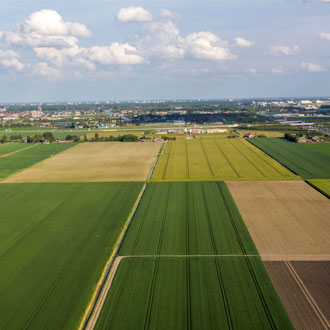
Not surprisingly, there are various legal issues that need to be considered by landowners before embarking upon your diversification scheme. Johanne Spittle FALA and head of litigation at Ware & Kay solicitors explains that top of your list should be checking whether there are any restrictions that might limit possible use of your land and access to it.
Access
It is common for farms and agricultural land to be accessed along private roads or tracks. If use of his road is required for the diversification project, for example to access the proposed farm shop or your commercial development, it will be necessary to establish ownership of the road or rights granted over it at the outset.
If access is required over a road or track that is owned by a neighbouring landowner and over which you have been granted a right of way you will need to ascertain whether there are any limitations on use, for example if use is restricted to agricultural use, and whether there are any other obligations that apply such as maintenance or an obligation not to cause nuisance, annoyance or disturbance to that neighbouring landowner. Similarly, you may own the road but others may have rights over it that might be affected by your increased use.

Despite the USA’s withdrawal from the Paris Agreements, the rest of the western world remains committed to tackling climate change and continuing to invest in forms of energy production, which do not contribute to greenhouse gas emissions.
Currently, around 30% of the UK’s energy production is from renewable sources, second only to gas. The main sources of this green energy are, of course, from wind, hydro-electric power, solar, and to a lesser extent from anaerobic digestion and heat pumps. Although capacity for renewable energy production is increasing year-on-year, with 69% of UK land currently used for agricultural purposes, there is clearly room to go further, and for the farming community to play a role in delivering the much-sought carbon neutral future.
- Read more about Renewable Diversification of Agricultural Land
- Log in to post comments
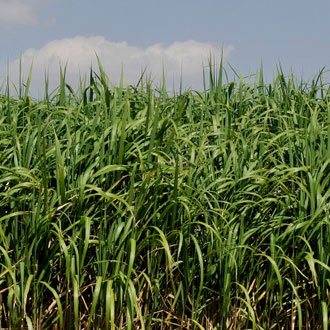
He will be opening his farm on 30th April to show other growers how his farm business has benefitted from the crop in an event co-hosted with Miscanthus expert Terravesta.
His Miscanthus crop is destined for the £173m Snetterton Renewable Energy Plant in Norfolk, which generates 44MWh of electricity – enough to supply 82,000 homes and save over 300,000 tons of CO2 every year, through the burning of biomass, including Miscanthus.

Growstack designs, manufactures, installs and supports multilevel growing system with full control of lighting through LEDs and irrigation feed rigs.
These range from large modular farm scale systems that can be built into a multitude of locations from underground tunnels, to abandoned buildings and warehouses, to new and purpose designed facilities. To small scale standalone units which may be bought or rented on a monthly basis and can be supported by delivered pre-sprouted growing products to be finished then sold. These smaller units are targeted at restaurants and food service outlets but have also been bought by universities and research organisations as test beds for growing projects.
Full support for maintenance, consumables and growing advice is also available. (Note: Growstacks is a UK distributor for GE and Valoyagrowing lights).
- Read more about Growstack Ltd
- Log in to post comments
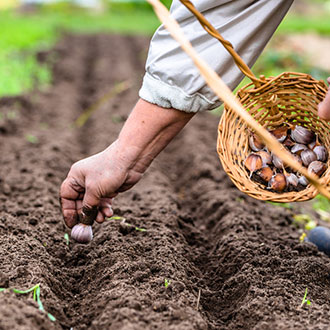
It’s official: spring has (almost) sprung. Temperatures have been feeling considerably warmer and more spring-like lately – but before the first buds begin to appear, you need to start prepping your land.
So, no matter if you’re a farm or smallholdings owner – or a groundskeeper for a school, golf club or estate – here’s how to shake off the winter coat and get ready for the working season ahead…
Walk the grounds
Before starting anything else, the first step is to walk the grounds and check what needs doing – making a list of any maintenance issues or repairs that need to be carried out so you can prioritise the most pressing ones. Areas to inspect include borders and fencing, outbuildings and livestock housing. You should note down any areas that need reseeding as well.
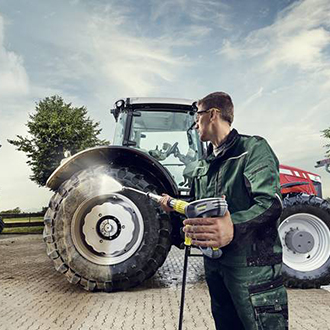
Global market leader for cleaning technology, Kärcher, is pleased to announce that the revolutionary EASY!Force trigger gun is available across all Kärcher hot and cold Professional pressure washers*, setting the new standard in high-pressure cleaning. The EASY!Force trigger gun unlocks the power to comfortable cleaning, allowing users the freedom to master any high-pressured task with effortless control. This innovative trigger gun provides full power with zero force, letting the water do the work!
Whether using a compact cold water pressure washer for those on the move cleaning jobs where easy transportation is essential, or a hot water model for cutting through tougher grease and dirt, EASY!Force puts the power and control effortlessly in your hands.

Farm Diversity editor Victoria Galligan spoke to Simon Robinson, chair of WineGB, about why farms in England and Wales are creating vineyards to rival those in Champagne…
Vineyards are cropping up all over the place at the moment, and with a “seismic” change occurring in English and Welsh wine production, it’s little wonder farmers are turning to the the humble grape to make a profit.
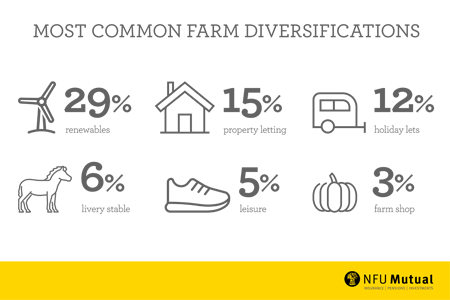
Farm diversification isn’t a new trend; resilience and adaptability have always been essential for farming businesses to survive and thrive. Over 60% of UK farms have diversified, according to Defra’s Farm Business Survey 2016/17.
NFU Mutual spoke to over 200 farmers from across the UK who have already taken the leap and already diversified from farming, or are considering their future business direction, to find out how and why.

